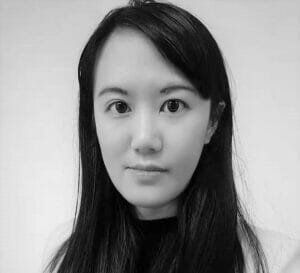Every year Chinese people celebrate Qīng míng jié 清明节 Tomb Sweeping Festival. This is a day on which Chinese people pay respect to their ancestors. Following the Lunar calendar, the festival is celebrated every year on the 1st day of the 5th solar term. This is usually on the 4th, 5th or 6th of April. It is a national holiday in China. This year Qīngmíng jié 清明节 is celebrated on April 5th.
The festival has been going on for more than 2,500 years. And on Qīng míng jié 清明节 Chinese people visit cemeteries to pay tribute to, remember, and celebrate deceased relatives and ancestors.
Table of Contents
ToggleQĪNG MÍNG JIÉ 清明节 - THE LEGEND
It is said that Qīng míng jié 清明节 is held to commemorate Jiè zǐ tuī 介子推 (?–636 BC), a loyal defender of Jìn Wén Gōng 晉文公 (697–628 BC) Duke Wen of Jin, who was born Chóng ěr 重耳 (literally “Double Ears”) before he became a Duke.
One day in 655 BC, when Prince Chóng ěr 重耳 was about to starve to death, Jiè zǐ tuī 介子推 secretly cut a piece of flesh from his thigh and cooked it into a meat soup, which saved the prince. Chóng ěr 重耳 wondered where Jiè zǐ tuī 介子推 had obtained the soup. When he found out what Jiè zǐ tuī 介子推 had done, the prince was so moved that he promised to reward him one day.
Nineteen years later, in 636 BC, Prince Chóng ěr 重耳 returned to his kingdom and took power as Jìn Wén Gōng 晉文公 Duke Wen of Jin, one of the five dominant figures of the Spring and Autumn Period (770–476 BC), was a Chinese emperor during the time.
Jìn Wén Gōng 晉文公 Duke Wen of Jin thanked and congratulated everyone who had assisted him, but he forgot about Jiè zǐ tuī 介子推 and did not mention him.
Jìn Wén Gōng 晉文公 then decided to pay a personal visit to Jiè zǐ tuī 介子推 and bestow a royal title on him. Jiè zǐ tuī 介子推 and his elderly mother took refuge on a nearby mountain and refused to meet with Jìn Wén Gōng 晉文公 because he did not want to serve as an officer in the military.
No one was able to locate him. When Jiè zǐ tuī 介子推 went into hiding, Jìn Wén Gōng 晉文公 set fire to the mountain to bring him out of hiding.
Three days later, two dead bodies were discovered in a cave beneath a willow tree on the mountain by Jìn Wén Gōng 晉文公 and his people, who determined that they were Jiè zǐ tuī 介子推 and his mother’s bodies.
Because Jiè zǐ tuī 介子推 was a man who never sought fame or profit and thus had a great character, Jìn Wén Gōng 晉文公 buried him and his mother in a tomb as well as ordered his subjects not to use fire or eat hot food on the day of their burial, which was held as part of a memorial ceremony.
The cold food tradition has survived as Qīng míng jié 清明节:
Hán shí jié 寒食节 The Cold Food Festival is a traditional Chinese holiday that originated as a local commemoration of the death of Jiè zǐ tuī 介子推. By the 7th-century Tang dynasty, the celebration of ancestors had spread throughout East Asia.
The tradition of not lighting any fires, even for food preparation, inspired the festival’s name. This practice was initially observed during the middle of winter for as long as a month. Still, its hardship led to repeated attempts to prohibit its observance out of concern for those who participated. This number had been reduced to three days by the end of the Three Kingdoms Period (3rd century).
The traditional observance was limited to a single day during the Tang dynasty, and the tradition was later known as the Qīng míng jié 清明节.

QĪNGMÍNG JIÉ 清明节 – LǏSÚ 礼俗 THE CEREMONY
During the Qingming Festival, there are numerous activities, including tomb sweeping, taking advantage of the pleasant weather outside, and flying kites. Willow branches are used to decorate the tombs and hung at the house’s front door during this time of year.
Nowadays, the ceremony includes tombs and graves being tended, cleaning and removing debris from the tombstones. Praying is another part of the rituals at Qīngmíng jié 清明节. You light incense sticks that have been embedded in the ground. After that, each family member participating in the ceremony takes turns offering prayers to their ancestors.
Offers are made to the deceased during the final segment of the ceremony. This can take the form of food, alcohol, paper goods, or even so-called “ghost money” that is burned as a formal offering for the afterlife of the beloved.
For their efforts, ancestors will bestow blessings on their living relatives and assist them in having a prosperous year in the temporal world. After the entire ceremony, all family members assemble around the tomb and raise coloured papers into the air in prayer to the heavens for a blessing on their loved one.
For the festival to function appropriately, tombs must be cleaned. The celebration’s two fundamental aspects are cleaning up the tombs and paying homage to the deceased with offerings: remembering the past and honouring the ancestors, respectively. The weeds around the tomb are removed, and new earth is added.
The deceased’s favourite dishes and wines are brought to their tombs as offerings and fake money. They set it ablaze in the hopes of surviving the afterlife with enough money and food to last them a lifetime.
QĪNGMÍNG JIÉ 清明节 – TÀQĪNG 踏青 FAMILY OUTINGS AND FÀNG FĒNGZHĒNG 放风筝 FLYING KITES
Qīngmíng jié 清明节 is not only a day to remember your ancestors, but it is also a day to enjoy yourself and spend time with your family on tàqīng 踏青 family outings.
Warmer temperatures, more sunlight, and fewer rainy days characterise March, making it an ideal time to spend time outdoors in nature and relaxing with friends or family. This tradition began during the Tang Dynasty and has continued to this day, becoming a popular tourist activity for the Chinese.
Fàng fēngzhēng 放风筝 flying kites is a prevalent activity during Qīngmíng jié 清明节. It is possible to see many of them in the sky at any time of the day or night of the festival in China. Small lanterns are attached to the kite at night to illuminate the festivities during nighttime. In the night sky, they take on the appearance of stars and are a breathtaking sight to behold.
Perhaps even more remarkable about kite flying is that people cut the thread that connects the kite to the ground, which is said to bring good fortune and cure diseases.
Besides being a day to remember and honour the deceased, this festival is also a day to spend with family outdoors or travel in spring’s vibrant colours following a long and grey winter.
OTHER VOCABULARIES
fén mù 坟墓 – tomb/grave
mù dì 墓地 – cemetery
sǎo mù 扫墓 – to sweep tombs
bài zǔ xiān 拜祖先 – to pay respects to ancestors
DO YOU WANT TO LEARN MORE MANDARIN CHINESE OR KNOW SOMEONE WHO WANTS TO?
If you want to learn Mandarin Chinese, feel free to REGISTER FOR A FREE TRIAL CLASS HERE or send me an email (Chen Huimin): huimin@laerkinesisk.no.
We offer private lessons and group classes at all levels, HSK 1-6, children, adults, business. All Mandarin Chinese classes are offered in classrooms or online.
Do you know anyone who wants to learn Chinese? We will give you 500 US dollars as a bonus as a part of our program “Refer a friend – get $ 500” if your friend or others you introduce to us start taking Chinese classes at our school.Register here if this is interesting for you!










